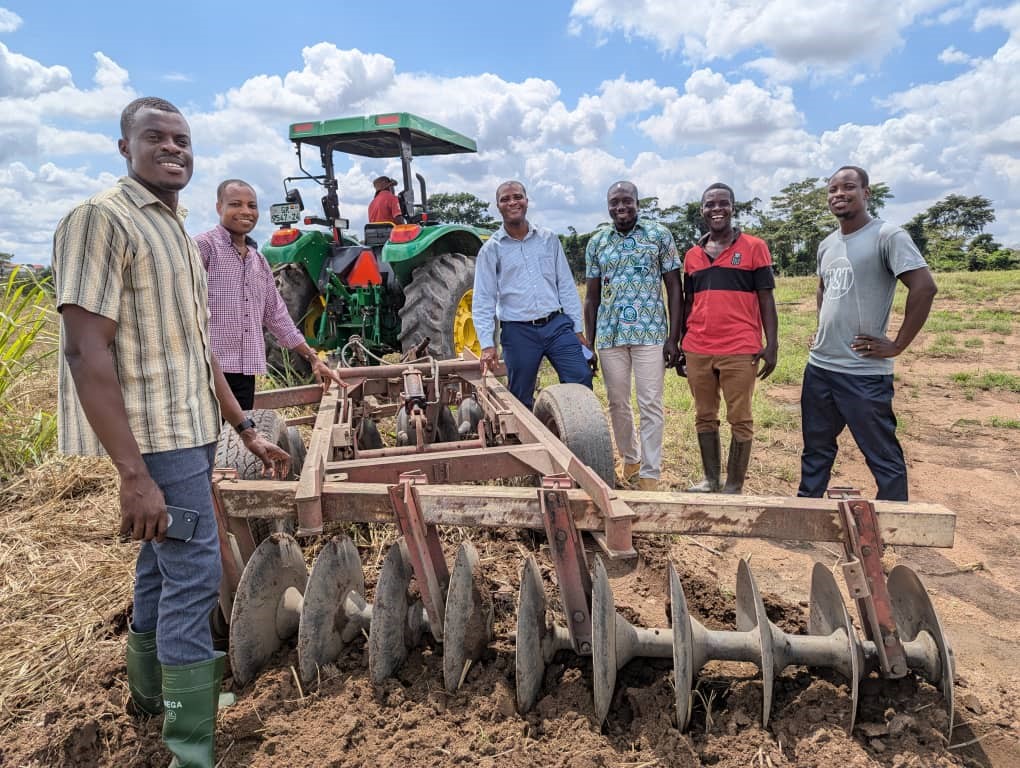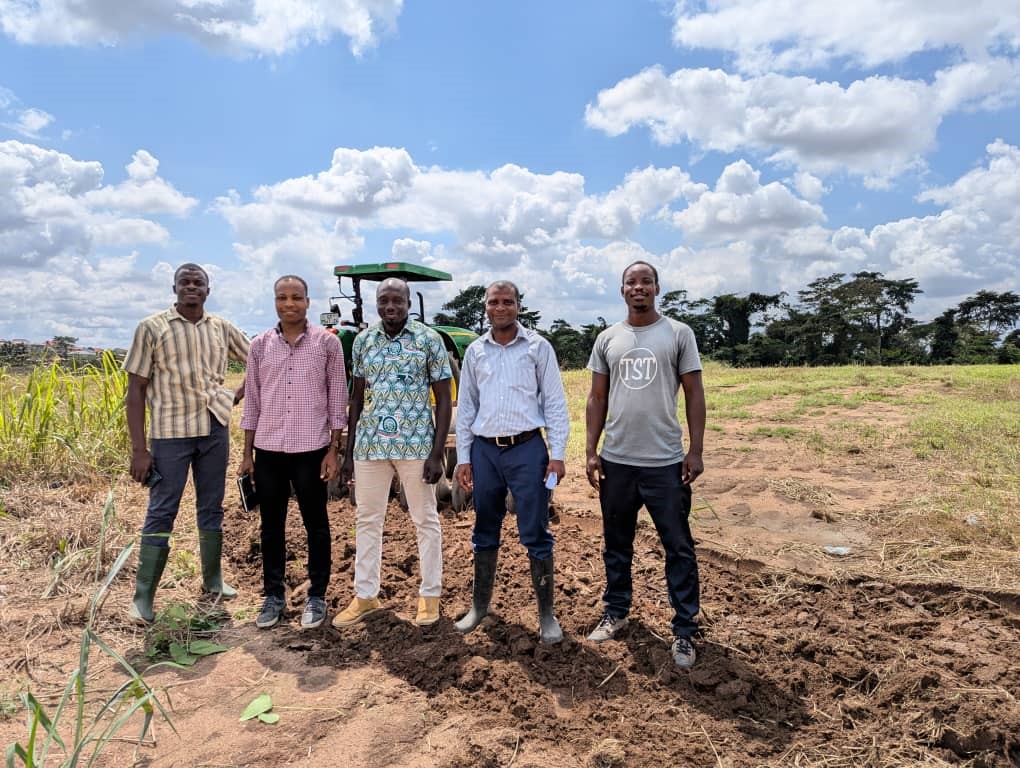CSIR-CROPS RESEARCH INSTITUTE LAUNCHES AGROECOLOGICAL AND CONVENTIONAL MAIZE TRIALS AT THE MULTICULTURAL TECHNOLOGY PARK

The CSIR-Crops Research Institute is pleased to announce the commencement of field preparations for a series of agroecological and conventional farming trials at the newly established Multicultural Technology Park, located on a 15-acre site in Fumesua, Ashanti Region. These trials mark the first phase of a larger initiative under the Agroecology and Circular Economy for Ecosystem Services in Sub-Saharan Africa (ACE4ES) project, which aims to promote sustainable agricultural practices across the continent. The multicultural technology park is established with funding support from the climate and clean air coalition (CCAC) under UNEP.
The initial trials will focus on comparing conventional farming methods — characterized by high tillage, synthetic fertilizer use, and biomass burning — with agroecological practices designed to reduce agricultural emissions, particularly nitrous oxide and black carbon. These trials represent a significant step forward in identifying sustainable solutions that enhance soil health, improve productivity, and mitigate climate change impacts.
Focus of the Maize Trials
The maize trials will explore the impact of various agroecological and conventional methods in the following key areas:
- Nitrous oxide and black carbon emissions resulting from different tillage practices and residue management strategies.
- Maize-legume intercropping, which promotes biological nitrogen fixation and reduces reliance on chemical fertilizers.
- Agroforestry systems, which incorporate trees and shrubs into maize fields to improve soil fertility and sequester carbon, further reducing emissions from agricultural activities.
The maize research team, led by Dr. Eric Owusu Danquah, along with Dr. Priscilla Ribeiro, Dr. Clement Oppong Peprah, Dr. Jeanette Aduhene-Chinbuah, Dr. Steven Arthur, and Dr. Felix Frimpong, will conduct these trials with the goal of developing scalable, climate-smart solutions for Africa’s farming systems.

Upcoming Experimental Setups
Following the maize trials, the ACE4ES project will expand its research focus to include additional experimental setups on:
- Rice methane reduction validation trials: These experiments will explore strategies to reduce methane emissions from rice paddies through improved water and nutrient management.
- Composting and organic fertilizer enrichment trials: These trials will evaluate the efficacy of composting and enriched organic fertilizers in improving crop productivity and soil health while minimizing emissions and further provide recommended rates of application as demanded by farmers during the project’s needs assessment with farmers focus groups.
- Integrated Pest Management (IPM) trials: These experiments will test IPM strategies that reduce pesticide usage and maintain crop health, promoting biodiversity and reducing environmental harm.
A Vision for Sustainable Agriculture
Dr. Kwaku Onwona-Hwesofour Asante, Project Lead and Principal Investigator of the ACE4ES project, emphasized the importance of the Multicultural Technology Park as a hub for agricultural innovation:
“The Multicultural Technology Park is designed to provide a collaborative platform for researchers across Africa to conduct groundbreaking experiments in agroecology and circular economy. By validating sustainable practices, we aim to drive significant reductions in emissions while enhancing ecosystem services. This park will play a critical role in promoting climate-smart agriculture that benefits both people and the environment.”
After the initial trials, the park will be open to scientists from across Africa, allowing them to conduct their own experimental research on agroecological practices and circular economy models in the context of climate action.
A Pan-African Hub for Research and Collaboration
The Multicultural Technology Park, established at the CSIR-Crops Research Institute, will become a pan-African hub for scientists and researchers to explore innovative, sustainable agricultural practices. It will serve as a space where researchers can study and test methods that promote ecosystem services, reduce greenhouse gas emissions, and build resilience to climate change, contributing to food security across Africa.
For more information about the Multicultural Technology Park and upcoming research opportunities, please contact CSIR-Crops Research Institute at info@ace4es.org
